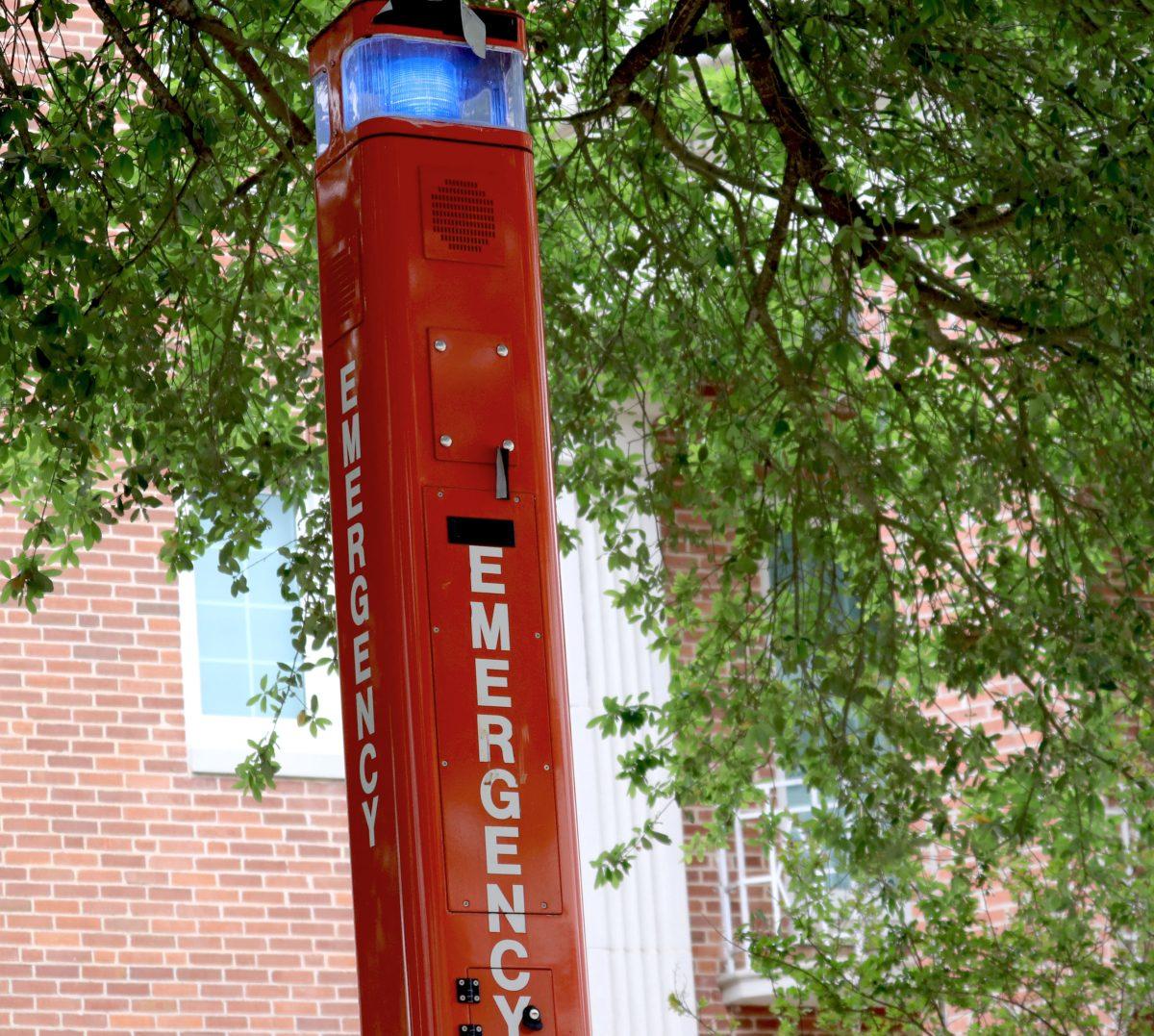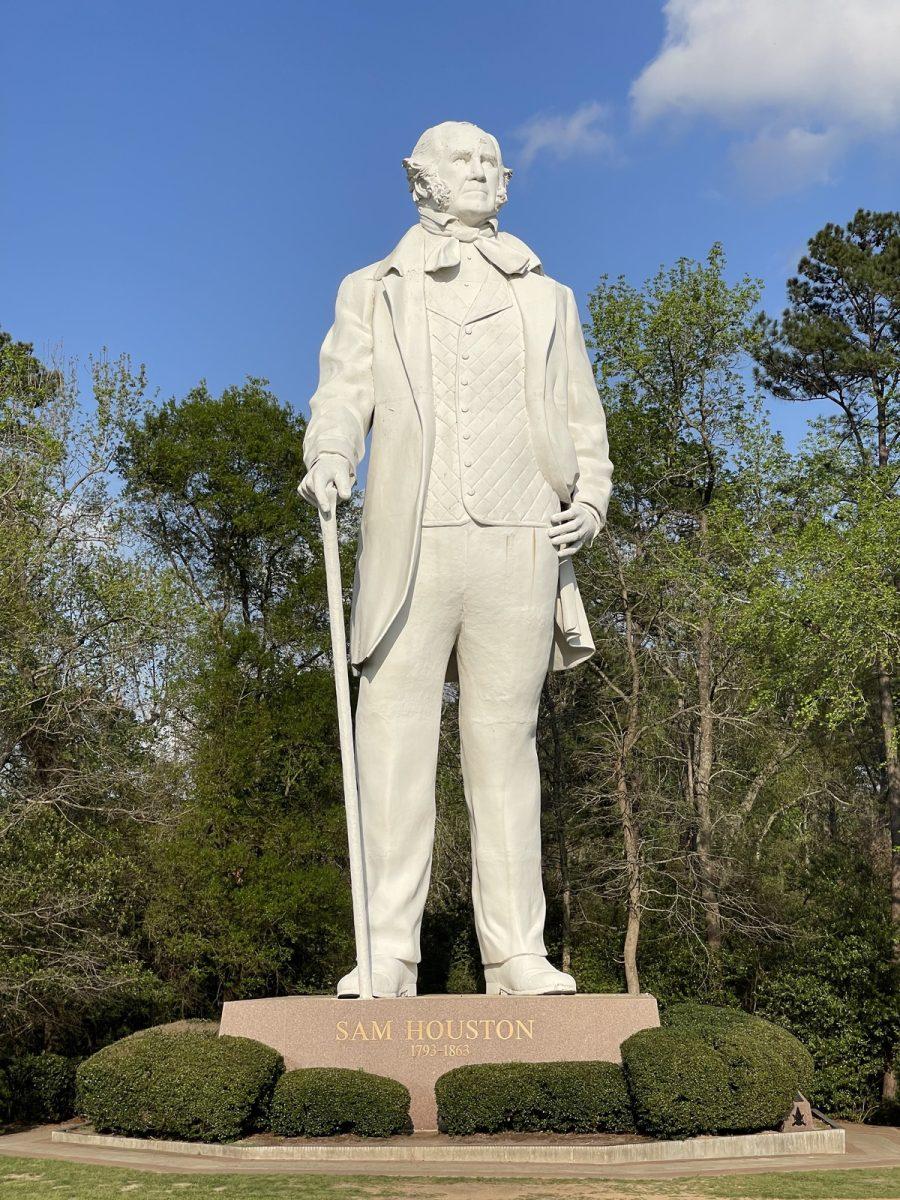It has recently come to our attention that Andrew Fastow has been invited to campus to speak on corporate ethics. While we do not doubt the good intentions of those who have invited him, we believe that the selection of Fastow, the former chief financial officer of Enron, demonstrates poor judgment on their part and a blatant disregard for hundreds of workers and investors who lost millions of dollars when Enron collapsed in 2002.
We find it particularly disturbing the milquetoast manner in which Fastow’s Enron presentation has been characterized. Enron was a fraud posing as an energy concern, and Fastow continues to misrepresent the depth of criminality there and his role in it. He served as a key figure behind the complex set of partnerships that Enron used to conceal its huge losses in quarterly reports. By maintaining an illegal stake in Enron’s shadow-entities, Fastow defrauded the company of tens of millions of dollars, while employees and investors lost everything. The Securities and Exchange Commission investigated Fastow, and he served a six-year prison sentence for these acts.
While Fastow will admit to overlooking ethical issues, he continues to assert that he didn’t know what he was doing at Enron was wrong. This is belied both by his extensive record of concealment and by common sense. Fastow portrays himself as a man lost in a gray area, but that is not true. He was operating with stealth and malice in a dark place where he himself had turned out the lights.
Fastow is now a critic of shady accounting practices that he contends are common in American business. We don’t doubt this, but the criticism is cleverly exculpatory: everyone does the things I did, he claims. But they didn’t, and they don’t. Even at Enron there were financial professionals who acted ethically; they became whistleblowers. Fastow only admitted his crimes when facing overwhelming evidence of guilt in the hands of federal prosecutors. We have invited the criminal to teach our students about ethical behavior instead of the people who actually acted ethically!
Fastow’s appearance at SHSU only helps him profit from his criminality. Although he is not being paid for his speech here, Fastow is reported to be paid for speeches in professional settings. Speaking at the invitation of the accounting department and the university’s compliance officer lends Fastow the veneer of professional and moral respectability that allows him to continue to enjoy the fruits of his fraud. In this sense, Sam Houston State is being used.
The silver lining in inviting Fastow to campus is that it presents the university community with an opportunity to reflect on justice in America. Thousands of men and women, mostly poor minorities, surround us in prisons. Hosting Fastow begs us to ask of their rehabilitation. Will they get a chance to go on a speaking tour to rehabilitate their names? How many of the 34,497 inmates convicted of burglary of a habitation, that now fill Texas prisons, will be invited to speak on the ethics of personal property at SHSU? How many of them will have the privilege to choose between two homes in tony neighborhoods after their convictions? We all know the answers to these questions. Even among crooks, the deck is stacked.
David Myers, former controller of WorldCom, spent only one year and a day in jail for conspiracy, securities fraud and false regulatory filings that cost investors and employees billions. He went on a speaking tour of college campuses in 2010. Wells Fargo recently had to pay $185 million in fines for setting up fraudulent accounts for customers that stole millions. No one will go to jail. Chief Financial Officer John Shrewsbury has semi-frequent speaking engagements at conferences and universities. Richard M. Scrushy was indicted on 36 counts of fraud when auditors uncovered hundreds of millions of dollars fraudulently charged by his company, HealthSouth. He now speaks regularly at universities, billing himself on his website as a “dynamic risk-taking entrepreneur with a powerful track record.”
What is even more troubling is that Scrushy, Fastow, and Meyers represent a bygone era, when CEOs and CFOs actually spent time in jail. Now, the SEC is much more likely to fine and forget than prosecute. In the words of Scrushy himself, “There’s no perp walks. There’s no locking up CFOs and CEOs. It’s not happening today.” Instead, we invite them to campuses to discuss ethics.







Robert • Oct 4, 2017 at 5:55 pm
Since these professors are such experts on Enron, perhaps they can enlighten us as to who the ethical people were at Enron. Do they not know how long this fraud took place? No one acted ethically (no, not even Sherron Watkins who did not come forward for quite some time and it is subject to debate whether she was ethical or just smart enough to realize the end was coming) and I find it comical that these professors think they are better able to address the ethical issues than Andy Fastow.
Robert • Oct 4, 2017 at 5:55 pm
Since these professors are such experts on Enron, perhaps they can enlighten us as to who the ethical people were at Enron. Do they not know how long this fraud took place? No one acted ethically (no, not even Sherron Watkins who did not come forward for quite some time and it is subject to debate whether she was ethical or just smart enough to realize the end was coming) and I find it comical that these professors think they are better able to address the ethical issues than Andy Fastow.
Robert • Oct 4, 2017 at 5:55 pm
Since these professors are such experts on Enron, perhaps they can enlighten us as to who the ethical people were at Enron. Do they not know how long this fraud took place? No one acted ethically (no, not even Sherron Watkins who did not come forward for quite some time and it is subject to debate whether she was ethical or just smart enough to realize the end was coming) and I find it comical that these professors think they are better able to address the ethical issues than Andy Fastow.
Robert • Oct 4, 2017 at 5:55 pm
Since these professors are such experts on Enron, perhaps they can enlighten us as to who the ethical people were at Enron. Do they not know how long this fraud took place? No one acted ethically (no, not even Sherron Watkins who did not come forward for quite some time and it is subject to debate whether she was ethical or just smart enough to realize the end was coming) and I find it comical that these professors think they are better able to address the ethical issues than Andy Fastow.
Susie Mimnaugh • Oct 4, 2017 at 10:24 am
Progress, far from consisting in change, depends on retentiveness. When change is absolute there remains no being to improve and no direction is set for possible improvement: and when experience is not retained, as among savages, infancy is perpetual. Those who cannot remember the past are condemned to repeat it. George Santayana
Susie Mimnaugh • Oct 4, 2017 at 10:24 am
Progress, far from consisting in change, depends on retentiveness. When change is absolute there remains no being to improve and no direction is set for possible improvement: and when experience is not retained, as among savages, infancy is perpetual. Those who cannot remember the past are condemned to repeat it. George Santayana
Susie Mimnaugh • Oct 4, 2017 at 10:24 am
Progress, far from consisting in change, depends on retentiveness. When change is absolute there remains no being to improve and no direction is set for possible improvement: and when experience is not retained, as among savages, infancy is perpetual. Those who cannot remember the past are condemned to repeat it. George Santayana
Susie Mimnaugh • Oct 4, 2017 at 10:24 am
Progress, far from consisting in change, depends on retentiveness. When change is absolute there remains no being to improve and no direction is set for possible improvement: and when experience is not retained, as among savages, infancy is perpetual. Those who cannot remember the past are condemned to repeat it. George Santayana
Brutalist_Receptacle • Sep 30, 2017 at 2:54 pm
WHAT HE SAID.
Robert • Sep 30, 2017 at 3:28 pm
Universities
used to be known as places where open conversations could occur, different
ideas would be exchanged and discussed and students would be prepared to enter
society as informed and more open-minded individuals. Of course, freedom of
speech on college campuses has become freedom of speech only for those who
support certain viewpoints. The cost of this speech is zero and it should
create an excellent opportunity for students to learn. You really think his
speech at SHSU is going to generate future revenue? Come on…
Robert • Sep 30, 2017 at 3:34 pm
As for those other prisoners, how many have these professors invited to campus? Some of these prisoners end up
as “motivational speakers” who talk to kids/adults about their mistakes. But I guess what you are saying is that these non-white collar prisoners are being discriminated against (a very different issue) and that the SEC isn’t doing its job (also a very different issue). I can’t help but wonder if Mr. Fastow had been in prison for something else (like these other inmates that are mentioned) if you would not argue that he had paid his dues and should be given a chance to return to society not protested against.
Robert • Sep 30, 2017 at 8:22 pm
Universities used to be known as places where open conversations could occur, different ideas would be exchanged and discussed and students would be prepared to enter society as informed and more open-minded individuals. Of course, freedom of speech on college campuses has become freedom of speech only for those who support certain viewpoints. The cost of this speech is zero and it should create an excellent opportunity for students to learn. I really don’t think his speech at SHSU is going to generate future revenue.
Jake • Oct 1, 2017 at 10:00 am
I think President Robert M. Hutchins of the University of Chicago said it best stating “our students . . .
should have freedom to discuss any problem that presents itself.” He insisted that the
“cure” for ideas we oppose “lies through open discussion rather than through
inhibition.” On a later occasion, Hutchins added that “free inquiry is indispensable to
the good life, that universities exist for the sake of such inquiry, [and] that without it
they cease to be universities.”
Brutalist_Receptacle • Sep 30, 2017 at 2:54 pm
WHAT HE SAID.
Robert • Sep 30, 2017 at 3:28 pm
Universities
used to be known as places where open conversations could occur, different
ideas would be exchanged and discussed and students would be prepared to enter
society as informed and more open-minded individuals. Of course, freedom of
speech on college campuses has become freedom of speech only for those who
support certain viewpoints. The cost of this speech is zero and it should
create an excellent opportunity for students to learn. You really think his
speech at SHSU is going to generate future revenue? Come on…
Robert • Sep 30, 2017 at 3:34 pm
As for those other prisoners, how many have these professors invited to campus? Some of these prisoners end up
as “motivational speakers” who talk to kids/adults about their mistakes. But I guess what you are saying is that these non-white collar prisoners are being discriminated against (a very different issue) and that the SEC isn’t doing its job (also a very different issue). I can’t help but wonder if Mr. Fastow had been in prison for something else (like these other inmates that are mentioned) if you would not argue that he had paid his dues and should be given a chance to return to society not protested against.
Robert • Sep 30, 2017 at 8:22 pm
Universities used to be known as places where open conversations could occur, different ideas would be exchanged and discussed and students would be prepared to enter society as informed and more open-minded individuals. Of course, freedom of speech on college campuses has become freedom of speech only for those who support certain viewpoints. The cost of this speech is zero and it should create an excellent opportunity for students to learn. I really don’t think his speech at SHSU is going to generate future revenue.
Jake • Oct 1, 2017 at 10:00 am
I think President Robert M. Hutchins of the University of Chicago said it best stating “our students . . .
should have freedom to discuss any problem that presents itself.” He insisted that the
“cure” for ideas we oppose “lies through open discussion rather than through
inhibition.” On a later occasion, Hutchins added that “free inquiry is indispensable to
the good life, that universities exist for the sake of such inquiry, [and] that without it
they cease to be universities.”
Brutalist_Receptacle • Sep 30, 2017 at 2:54 pm
WHAT HE SAID.
Robert • Sep 30, 2017 at 3:28 pm
Universities
used to be known as places where open conversations could occur, different
ideas would be exchanged and discussed and students would be prepared to enter
society as informed and more open-minded individuals. Of course, freedom of
speech on college campuses has become freedom of speech only for those who
support certain viewpoints. The cost of this speech is zero and it should
create an excellent opportunity for students to learn. You really think his
speech at SHSU is going to generate future revenue? Come on…
Robert • Sep 30, 2017 at 3:34 pm
As for those other prisoners, how many have these professors invited to campus? Some of these prisoners end up
as “motivational speakers” who talk to kids/adults about their mistakes. But I guess what you are saying is that these non-white collar prisoners are being discriminated against (a very different issue) and that the SEC isn’t doing its job (also a very different issue). I can’t help but wonder if Mr. Fastow had been in prison for something else (like these other inmates that are mentioned) if you would not argue that he had paid his dues and should be given a chance to return to society not protested against.
Robert • Sep 30, 2017 at 8:22 pm
Universities used to be known as places where open conversations could occur, different ideas would be exchanged and discussed and students would be prepared to enter society as informed and more open-minded individuals. Of course, freedom of speech on college campuses has become freedom of speech only for those who support certain viewpoints. The cost of this speech is zero and it should create an excellent opportunity for students to learn. I really don’t think his speech at SHSU is going to generate future revenue.
Jake • Oct 1, 2017 at 10:00 am
I think President Robert M. Hutchins of the University of Chicago said it best stating “our students . . .
should have freedom to discuss any problem that presents itself.” He insisted that the
“cure” for ideas we oppose “lies through open discussion rather than through
inhibition.” On a later occasion, Hutchins added that “free inquiry is indispensable to
the good life, that universities exist for the sake of such inquiry, [and] that without it
they cease to be universities.”
Brutalist_Receptacle • Sep 30, 2017 at 2:54 pm
WHAT HE SAID.
Robert • Sep 30, 2017 at 3:28 pm
Universities
used to be known as places where open conversations could occur, different
ideas would be exchanged and discussed and students would be prepared to enter
society as informed and more open-minded individuals. Of course, freedom of
speech on college campuses has become freedom of speech only for those who
support certain viewpoints. The cost of this speech is zero and it should
create an excellent opportunity for students to learn. You really think his
speech at SHSU is going to generate future revenue? Come on…
Robert • Sep 30, 2017 at 3:34 pm
As for those other prisoners, how many have these professors invited to campus? Some of these prisoners end up
as “motivational speakers” who talk to kids/adults about their mistakes. But I guess what you are saying is that these non-white collar prisoners are being discriminated against (a very different issue) and that the SEC isn’t doing its job (also a very different issue). I can’t help but wonder if Mr. Fastow had been in prison for something else (like these other inmates that are mentioned) if you would not argue that he had paid his dues and should be given a chance to return to society not protested against.
Robert • Sep 30, 2017 at 8:22 pm
Universities used to be known as places where open conversations could occur, different ideas would be exchanged and discussed and students would be prepared to enter society as informed and more open-minded individuals. Of course, freedom of speech on college campuses has become freedom of speech only for those who support certain viewpoints. The cost of this speech is zero and it should create an excellent opportunity for students to learn. I really don’t think his speech at SHSU is going to generate future revenue.
Jake • Oct 1, 2017 at 10:00 am
I think President Robert M. Hutchins of the University of Chicago said it best stating “our students . . .
should have freedom to discuss any problem that presents itself.” He insisted that the
“cure” for ideas we oppose “lies through open discussion rather than through
inhibition.” On a later occasion, Hutchins added that “free inquiry is indispensable to
the good life, that universities exist for the sake of such inquiry, [and] that without it
they cease to be universities.”